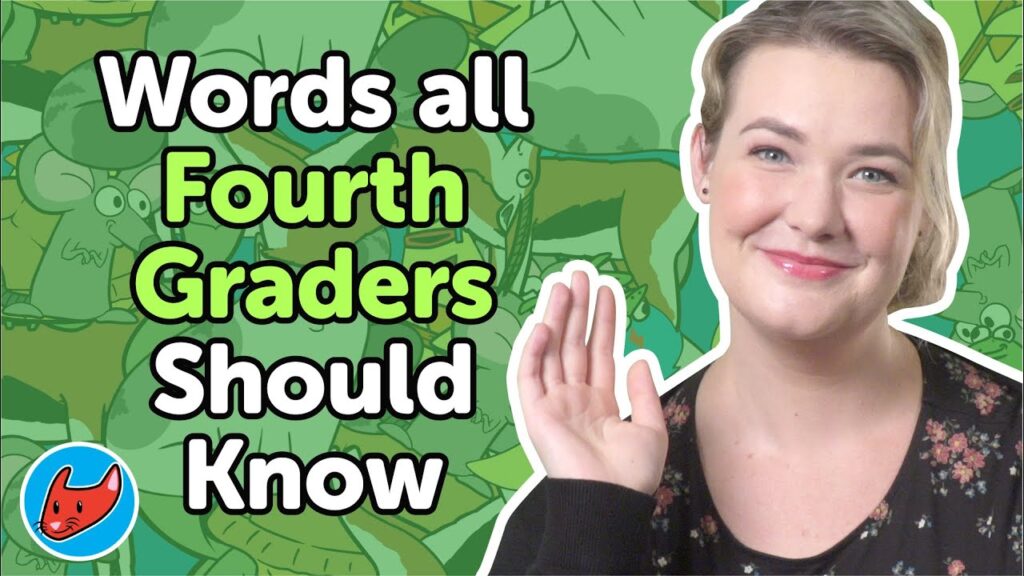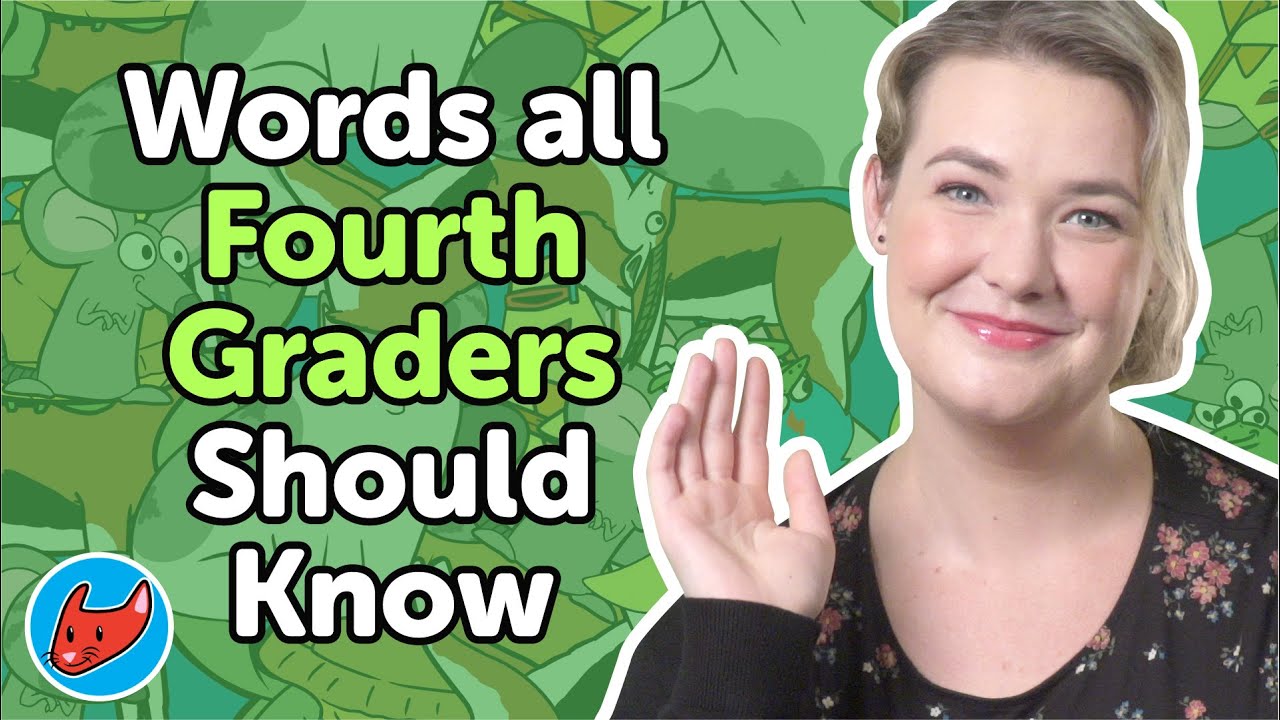
What Should Fourth Graders Know? A Comprehensive Guide for Parents and Educators
Fourth grade marks a significant milestone in a child’s educational journey. It’s a year where students transition from learning to read, to reading to learn, and begin to tackle more complex concepts across various subjects. Understanding what should fourth graders know is crucial for parents and educators alike, ensuring children are well-prepared for future academic success. This guide provides a comprehensive overview of the key skills and knowledge expected of fourth graders, offering insights into the curriculum and practical tips for supporting their learning both in and out of the classroom.
Language Arts: Building a Foundation for Literacy
In language arts, fourth graders are expected to significantly enhance their reading, writing, and communication skills. They should be able to comprehend increasingly complex texts, identify main ideas and supporting details, and make inferences based on textual evidence. Vocabulary development is also a key focus, with students learning to use context clues to understand unfamiliar words.
Reading Comprehension
- Identifying the main idea and supporting details in a text.
- Making inferences and drawing conclusions based on textual evidence.
- Understanding different text structures, such as cause and effect, compare and contrast, and problem and solution.
- Analyzing character traits, motivations, and relationships in stories.
- Recognizing different literary genres, such as fiction, nonfiction, poetry, and drama.
Writing Skills
Fourth-grade writing focuses on developing clear, organized, and grammatically correct compositions. Students are expected to write narratives, informative reports, and opinion pieces, using proper sentence structure, punctuation, and capitalization. They should also learn to revise and edit their work to improve clarity and accuracy.
- Writing well-organized paragraphs with a clear topic sentence and supporting details.
- Using a variety of sentence structures to enhance writing style.
- Applying correct grammar, punctuation, and capitalization rules.
- Developing strong vocabulary and using descriptive language.
- Writing different types of essays, including narrative, informative, and persuasive pieces.
Vocabulary and Language Conventions
A robust vocabulary is essential for reading comprehension and effective communication. Fourth graders should continue to expand their vocabulary through reading, direct instruction, and the use of reference materials like dictionaries and thesauruses. They also need to master essential grammar and language conventions.
- Using context clues to determine the meaning of unfamiliar words.
- Understanding prefixes, suffixes, and root words.
- Identifying and using different parts of speech correctly (nouns, verbs, adjectives, adverbs, pronouns, etc.).
- Applying correct grammar rules, including subject-verb agreement, pronoun usage, and verb tense consistency.
- Mastering punctuation rules, including commas, periods, question marks, and quotation marks.
Mathematics: Mastering Key Concepts and Skills
Fourth-grade math builds upon previous knowledge and introduces more complex concepts, including multi-digit multiplication and division, fractions, decimals, and geometry. Students are expected to develop fluency in basic math facts and apply their knowledge to solve real-world problems. Understanding what should fourth graders know in math is critical for building a strong foundation for future mathematical studies.
Number and Operations
- Multiplying multi-digit numbers using the standard algorithm.
- Dividing multi-digit numbers by one-digit divisors.
- Understanding place value up to the millions place.
- Comparing and ordering whole numbers.
- Rounding numbers to the nearest ten, hundred, or thousand.
Fractions and Decimals
Fractions and decimals are introduced in fourth grade, laying the groundwork for more advanced concepts in later years. Students should be able to understand equivalent fractions, compare fractions, and perform basic operations with fractions that have like denominators. They also need to understand the relationship between fractions and decimals.
- Understanding the concept of equivalent fractions.
- Comparing and ordering fractions with like and unlike denominators.
- Adding and subtracting fractions with like denominators.
- Converting between fractions and decimals.
- Understanding decimal place value to the hundredths place.
Geometry and Measurement
Geometry and measurement concepts are also explored in fourth grade. Students should be able to identify and classify different types of angles, lines, and two-dimensional shapes. They should also be able to measure length, area, and volume using appropriate units.
- Identifying and classifying different types of angles (acute, obtuse, right, straight).
- Recognizing and drawing different types of lines (parallel, perpendicular, intersecting).
- Identifying and classifying two-dimensional shapes (triangles, quadrilaterals, pentagons, hexagons, etc.).
- Calculating the area and perimeter of rectangles and squares.
- Measuring length, area, and volume using standard units (inches, feet, yards, centimeters, meters, liters, etc.).
Science: Exploring the Natural World
Fourth-grade science focuses on exploring the natural world through hands-on experiments and investigations. Students learn about topics such as ecosystems, weather, energy, and the human body. They are expected to develop scientific inquiry skills, including making observations, formulating hypotheses, conducting experiments, and analyzing data. Understanding what should fourth graders know in science helps them develop a lifelong curiosity about the world around them.
Life Science
- Understanding the characteristics of living things.
- Learning about different ecosystems and how organisms interact within them.
- Exploring the life cycles of plants and animals.
- Understanding the structure and function of the human body.
Earth Science
- Learning about weather patterns and climate.
- Understanding the water cycle.
- Exploring different landforms and geological processes.
- Learning about natural resources and their importance.
Physical Science
- Understanding different forms of energy (light, heat, sound, electricity).
- Learning about the properties of matter.
- Exploring the concepts of force and motion.
Social Studies: Understanding History, Geography, and Civics
Fourth-grade social studies typically focuses on local and state history, geography, and civics. Students learn about the history of their state, its geography, and the functions of its government. They are expected to develop critical thinking skills, such as analyzing primary and secondary sources, and understanding different perspectives. Knowing what should fourth graders know in social studies helps them become informed and engaged citizens.
History
- Learning about the history of their state and local community.
- Exploring significant events and figures in state history.
- Understanding the impact of historical events on the present.
Geography
- Learning about the geography of their state and region.
- Identifying major landforms, bodies of water, and natural resources.
- Understanding how geography influences human settlement and economic activity.
Civics
- Learning about the structure and function of state and local government.
- Understanding the rights and responsibilities of citizens.
- Exploring the importance of civic participation.
Supporting Fourth Grade Learning
Parents and educators play a crucial role in supporting fourth-grade learning. Here are some practical tips:
- Encourage reading at home: Provide access to a variety of books and magazines, and encourage your child to read for pleasure.
- Help with homework: Provide a quiet and comfortable study environment, and offer assistance when needed.
- Communicate with teachers: Stay informed about your child’s progress and address any concerns promptly.
- Provide opportunities for hands-on learning: Engage your child in activities that reinforce classroom learning, such as cooking, gardening, and building projects.
- Foster a growth mindset: Encourage your child to embrace challenges and view mistakes as opportunities for learning.
Addressing Learning Gaps
It’s essential to identify and address any learning gaps early on. If a child is struggling in a particular subject, consider seeking additional support, such as tutoring or extra help from the teacher. Early intervention can prevent small problems from becoming bigger ones and ensure that the child stays on track. What should fourth graders know also includes knowing how to seek help when they need it. [See also: How to Identify Learning Disabilities in Children]
The Importance of Social-Emotional Learning
Beyond academics, social-emotional learning (SEL) is also crucial for fourth graders. SEL involves developing skills such as self-awareness, self-management, social awareness, relationship skills, and responsible decision-making. These skills are essential for success in school and in life. Schools are increasingly incorporating SEL programs into their curriculum to help students develop these important skills. Understanding what should fourth graders know includes understanding how to navigate social situations and manage their emotions effectively. [See also: The Benefits of Social-Emotional Learning in Schools]
Conclusion: Preparing for Future Success
Fourth grade is a pivotal year in a child’s education, laying the foundation for future academic success. By understanding what should fourth graders know, parents and educators can work together to ensure that children are well-prepared for the challenges and opportunities that lie ahead. This comprehensive guide provides a roadmap for supporting fourth-grade learning, covering key skills and knowledge in language arts, mathematics, science, and social studies. By focusing on both academic and social-emotional development, we can help children reach their full potential and thrive in the years to come. What should fourth graders know is more than just a checklist; it’s a journey of growth, discovery, and preparation for a successful future. It’s important to remember that every child learns at their own pace, and the most important thing is to provide a supportive and encouraging learning environment.

